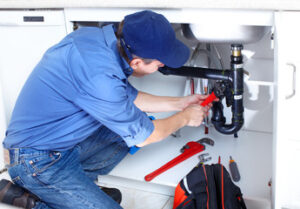A plumbing system is a network of pipes, fixtures, and fittings that carry clean water into and out of a building. Plumbing Springdale AR also includes waste pipes and vents. A typical plumbing plan includes supply drawings, drain-waste-vent elevations, sanitary stack plans, and riser diagrams. Legends, schedules, and notes specific to the project are also included.
 The water heater is a big part of your home’s plumbing system. It’s designed to heat and supply hot water, like during a shower or laundry. Several water heaters exist, including conventional storage, tankless and hybrid models. They all have unique features and capabilities, so choosing the one that best meets your needs and budget is important.
The water heater is a big part of your home’s plumbing system. It’s designed to heat and supply hot water, like during a shower or laundry. Several water heaters exist, including conventional storage, tankless and hybrid models. They all have unique features and capabilities, so choosing the one that best meets your needs and budget is important.
A conventional heater takes cold incoming water and indirectly warms it up by either a gas burner or an electric element inside of the tank. Once the water reaches a desired temperature, it’s stored in the tank. Depending on the model, it may have a thermostat that records the water temperature in the tank and automatically adjusts to keep it at the set temperature when you turn on your faucet or appliance. This eliminates standby energy losses and can save you money on your heating bill.
Septic systems have two main components: the septic tank and the distribution box. A septic system uses natural and mechanical processes to remove unwanted solids and organic matter from wastewater before returning it to the ground. It also helps prevent nearby drinking water wells and local waterways from becoming contaminated by pathogens, viruses and other contaminants. The tank sits underground and can range from 1,000 to 2,000 gallons in size.
The distribution box is a concrete or plastic cube that distributes wastewater evenly into a drain field. The box is located lower than the tank and uses gravity to receive wastewater from the tank and distribute it to the drain field. In a conventional septic system, the partially treated wastewater from the septic tank flows through perforated pipes into a drain field, where gravel and soil act as biological filters to purify the waste. However, sewage can still contaminate the groundwater in the area and may be harmful to people and animals.
Drain cleaning is a plumbing service that mechanically removes obstructions within your home’s pipes to ensure proper water flow. This can be done with a wide variety of equipment and tools. Chemical drain cleaners are commonly used for clogs that have built up over time from food, grease, hair, soap scum and other debris. They create a chemical reaction between the clog and the cleaner, which can dissolve the clog or move it out of the way.
However, these types of chemicals can be dangerous to your health and your plumbing. They also release harsh chemical fumes into the air and can harm your respiratory system. If you use chemical drain cleaners, be sure to wear gloves and goggles.
If you’re planning a plumbing project in your home, knowing the required permits is important. Permits are necessary to ensure that all plumbing work is done properly and in accordance with the local building codes. The requirements vary from county to county, so you may want to contact your local jurisdiction’s building and safety department to see what is needed for your particular plumbing project.
Most major plumbing jobs, such as re-piping or replacing drain lines, will require a permit. This is because these projects are large and have many safety regulations to follow. Re-piping is a particularly big job because all home water supply pipes must be replaced. This is why hiring a professional plumber for this type of project is important.
Plumbing contractors can work on anything from minor repairs to major renovations. While many plumbers specialize in residential plumbing, others work on commercial projects. Commercial plumbers are usually more expensive than their residential counterparts. As an average, commercial plumbers charge between $100 and $80 an hour. However, you may be able to get cheaper rates if you choose a smaller plumbing company rather than a big corporate company. However, keep in mind that plumbers with large companies may have better insurance and quality guarantees.
Plumbers perform a variety of plumbing services in commercial and residential buildings. Their skills range from basic mechanical knowledge to assessing situations and determining appropriate action. They must have a thorough understanding of local building codes and regulations to perform their work safely. They also possess problem-solving skills, which make them desirable job candidates.
